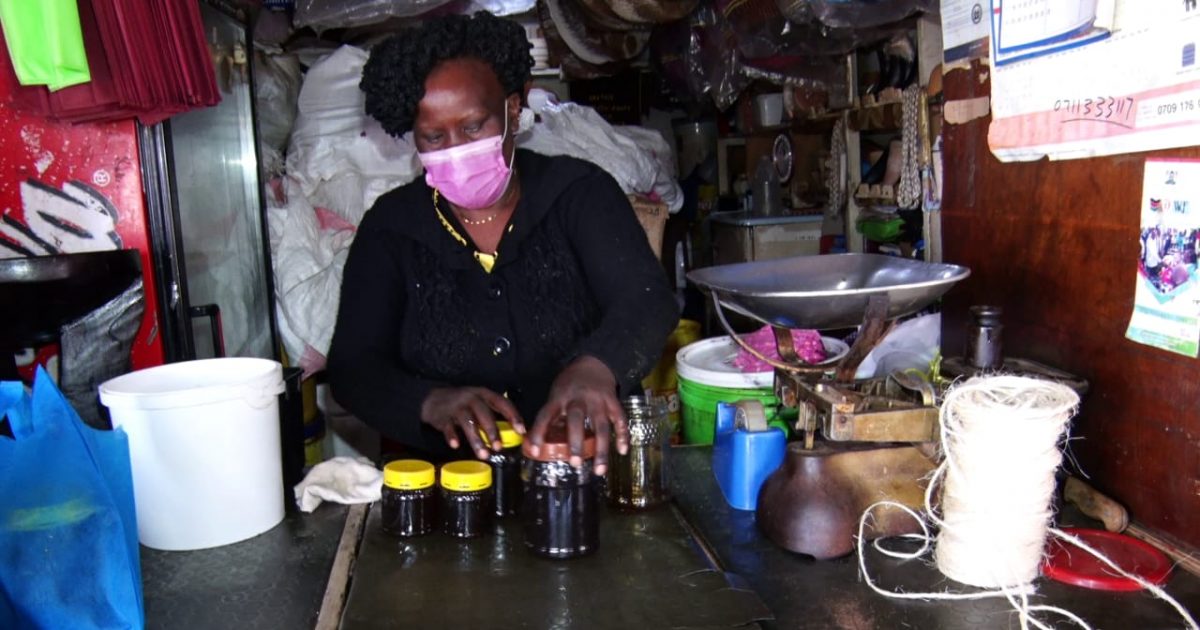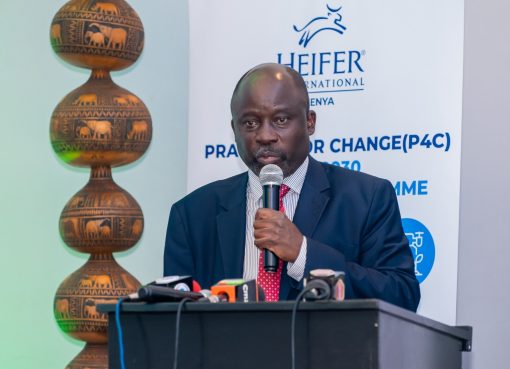A group of women from Thika town have been able to own multi-million worth of investment through selling honey.
With only Sh50, 000 member contributions that they had 15 years ago, the 12 Sisters Women Group had several business proposals but settled on selling honey.
Currently they own four storey buildings and six plots, some of which are under construction and are able to collect over Sh200, 000 monthly rent.
“It was difficult reaching to an agreement because each one of us had their own proposal. Initially, we were not convinced that selling honey was lucrative,” says the group’s coordinator Esther Wangui.
However, one of the members branded ‘The 12 Sisters’’ had an idea of what honey selling entails and contacts of customers since her sister used to sell honey.
They opened a shop in Thika’s Jamhuri market where they could stock the honey. “We also used to deliver orders to hotels and other customers. We had a huge market,” she says.
With the proceeds, they bought their first plot 10 years ago slowly, through their proceeds and a boost from the government’s Women Enterprise Fund (WEF).
“It has not been smooth sailing as being many, there have to be disagreements. There have been fluctuations in our markets and where we source our honey, thereby affecting our operations,” says Wangui.
They source raw honey as far as Kitui, Murang’a, West Pokot and Baringo Counties and have opened branches in those areas for ease in marketing.
Once they get the raw honey, they package it and sell it to their customers. “We source the honey at Sh100 per kilo and sell at Sh300. In a day, we can sell over 400 kilograms depending on the season,” she says.
To reduce the cost of buying honey, the group has bought an acre piece of land in Mananja area, Murang’a County where they have over 200 beehives fully stocked with bees.
To keep the beehives packed with bees, they have planted acacia, avocadoes, and oranges to help attract bees and provide nectar for honey production.
She however says they prefer buying raw honey to keeping bees, due to the time and labour demands in the entire process up to honey harvesting.
“Bee keeping is not only time consuming, but also demanding. It needs dedication and monitoring of making bees feel comfortable in that environment as well as keeping off honey thieves. We prefer buying raw honey as they only need to package and sell,” she says.
All the 12 members have roles of either marketing, sourcing for honey, selling, and setting bee hives among other roles.
To boost their earnings, they often source funding from WEF which they use to expand their business.
“The beauty with WEF is that we repay the loans interest-free and because of the trust we have with one another, we find no challenge in seeking for the loans and repaying it. Again, we have attended several workshops that trained us on how to grow our business,” she said.
She says bee keeping is not only demanding, but also affected by weather changes, leading to honey shortages.
“During the cold and rainy weather, honey is swept away by rains. When it is too hot and there is a drought, we have honey shortages since there is no food for the bees to feed on. This leads to honey shortage and also increase in honey prices,” she says.
During this Covid-19 period, the cessation of movement that has been imposed by the government to prevent the spread of the virus, has limited their honey market.
“Our market has shrunk during this Covid-19 period. Some of our market has been shut due to the cessation of movement, but we hope normalcy will resume soon. On the flipside, the market for honey during this pandemic period is on the rise, with health experts advising on the need to consume honey and bitter lemon to protect one from contracting the virus,” she adds.
Their dream once the pandemic period is finally over is to increase their market segment by opening branches in every county.
This they said, will enable them complete the construction of their six remaining plots, as they look to retire from business.
“We shall continue with our business of selling honey even at our old age. It is not as demanding and pays well. Our aim is to complete the construction of our houses to be well prepared for our old age,” she said.
She called on the government to protect local entrepreneurs by giving them incentives, cutting operation costs and protecting them from importers.
The group challenged other women to be open-minded to join groups that will help them grow financially. “If it were not for this group, maybe we could be struggling. Groups attract loans and working as a team makes them grow,” she said.
Jackline Wanjiru Kimani, one of their customers for years said they trust the group as they are assured of getting pure honey.
“I have been their customers for honey since 2005. They are the best in selling pure honey in the area,” she says.
By Lilian Mworia and Muoki Charles





